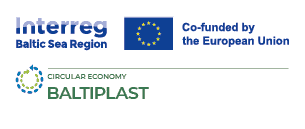
Promoting Plastic-Free Festivals: Real-World Examples and Tips for Reducing Waste
20 August 2024
Festivals Leading the Initiatives in Plastic Reduction
Several festivals across Europe are pioneering efforts to drastically reduce or eliminate single-use plastics:
- Gentse Feesten (Ghent, Belgium): This large Belgian festival has become a changemaker by eliminating disposable cups. Instead, drinks are served in reusable cups that festival-goers purchase for a €1 deposit, refundable at various locations. This initiative led to a 27% decrease in waste, with 15 tonnes less waste generated compared to previous years. The City of Ghent has made waste-free festivities a priority, requiring all event organizers to submit detailed waste management plans and offering reusable cups through the municipal waste department.
- Estonian XIII Youth Song and Dance Festival “Holy is the Land” (Tallinn, Estonia): Held in the summer of 2023, this festival was the largest event in Estonia to serve food and drinks exclusively in reusable dishes, with 11 collection points for returning these items. Over 400,000 reusable items were used, preventing nearly half a million disposable dishes from becoming waste. This is part of a broader initiative in Tallinn, where, from June 2023, all public events must use reusable containers, a policy set to expand nationwide by 2024.
- Glastonbury Festival (United Kingdom): Known for its sustainability efforts, Glastonbury banned the sale of single-use plastic bottles in 2019, reducing plastic waste by millions of items. The festival has continued to innovate, introducing compostable crisp packets in 2022 and banning disposable vapes in 2023. Glastonbury requires all vendors to use only compostable or reusable serveware and has implemented a variety of measures to promote sustainable alternatives and reduce non-recyclable waste.
Tips for Festival-Goers: How to Reduce Your Plastic Footprint
Even if your favourite festival has not fully embraced plastic-free policies, there are several steps you can take to minimize your own plastic waste:
- Bring Reusable Items: Pack a reusable water bottle, coffee cup, and beverage cup to avoid disposable options.
- Stainless Steel Cutlery and Containers: Bring your own cutlery and food containers to store food, serve meals, and take leftovers home responsibly.
- Cloth Napkins and Hand Sanitizer: Use cloth napkins instead of disposable ones and bring a refillable hand sanitizer to eliminate the need for disposable wipes.
Guide for Festival Organizers: Hosting a Plastic-Free Event
For festival organizers, reducing plastic waste is not only achievable but also increasingly expected by environmentally conscious attendees. Here’s how to make your event more sustainable:
- Promote a Plastic-Free Festival: Clearly advertise the event as single-use plastic-free.
- Require Sustainable Serveware: Ensure all vendors use only reusable or 100% compostable plates, cups, and utensils.
- Ban Harmful Decorations: Prohibit the use or release of balloons and other non-biodegradable decorations.
- Provide Water Refill Stations: Offer water stations for refillable bottles to discourage the sale of bottled water.
- Implement Recycling and Composting: Set up clearly labelled recycling, composting, and waste bins, and provide staff to guide attendees.
- Monitor and Report Waste: Arrange for waste services to handle collected materials responsibly and review waste data to set improvement goals for future events.
By taking these steps, both organizers and festival-goers can help reduce the environmental impact of festivals, paving the way for a more sustainable and enjoyable festival experience.





